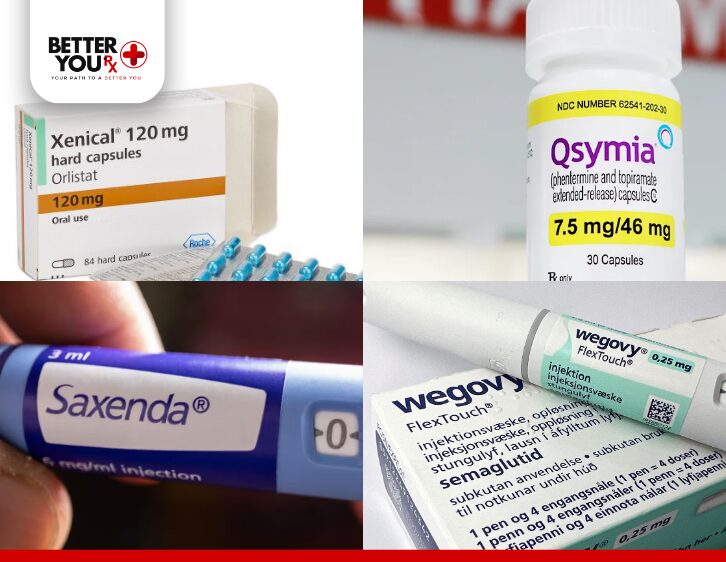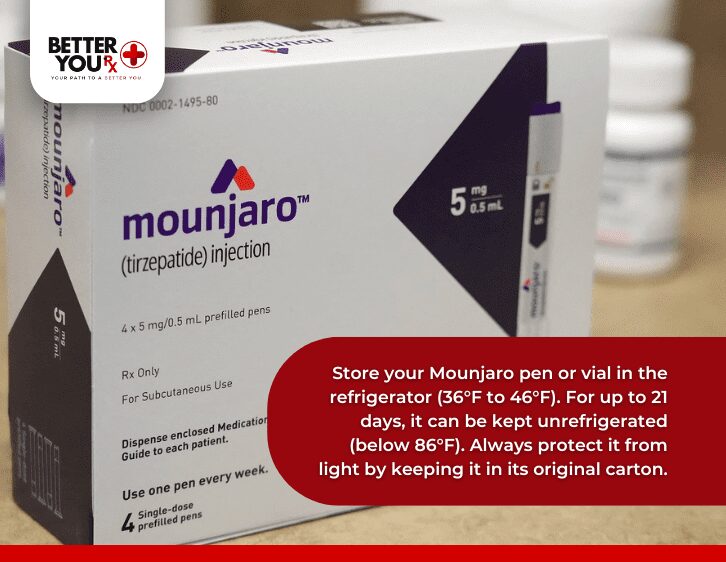The Journey of Insulin Discovery and Its Lasting Impact on Diabetes Management
The discovery of insulin stands as one of the most pivotal achievements in medical history. Before insulin was found, diabetes, especially type 1 diabetes, was considered a death sentence. Individuals diagnosed with the condition had no hope of survival beyond a few months or years due to the lack of any effective treatment. Today, thanks to the discovery and evolution of insulin therapies, millions of people can manage diabetes and lead relatively normal lives. This article delves into the history of insulin, the advancements in its formulation, and how modern insulin analogs like Humalog, Novolog, and Apidra are further improving diabetes management.
Early Understanding of Diabetes
The journey toward insulin discovery began with an understanding of diabetes as a metabolic disorder. The earliest references to diabetes date back to ancient Egypt and Greece, where it was described as a condition that caused excessive urination and weight loss. Greek physicians later added “mellitus” to the name when they noticed that diabetic urine tasted sweet—a telltale sign of excess sugar in the bloodstream. However, despite this basic understanding, doctors in antiquity could do little to treat the condition, and individuals diagnosed with diabetes often faced grim outcomes.
The Role of the Pancreas in Blood Sugar Regulation
By the late 19th century, scientists began to hone in on the pancreas as a critical player in diabetes. In 1889, German researchers Oskar Minkowski and Joseph von Mering demonstrated that dogs whose pancreases were removed developed symptoms similar to diabetes, such as excessive thirst, frequent urination, and weight loss. This experiment was the first concrete evidence linking the pancreas to diabetes, but the specific mechanism remained unknown.
It wasn’t until 1921 that Canadian physician Frederick Banting and his assistant, Charles Best, conducted a series of experiments at the University of Toronto that would change the course of diabetes treatment forever. Banting hypothesized that the pancreas produced a hormone responsible for controlling blood sugar, and his experiments led to the isolation of that hormone—later named insulin.
The Discovery of Insulin

Frederick Banting’s breakthrough came when he and Charles Best successfully extracted insulin from the pancreases of dogs and used it to treat diabetes in other dogs, drastically reducing their blood sugar levels. The next major step came in January 1922, when a 14-year-old boy named Leonard Thompson became the first human to receive an insulin injection. Thompson had been near death due to type 1 diabetes, but within hours of receiving insulin, his blood sugar levels dropped significantly, and his health began to improve. The success of this trial marked the beginning of insulin as a life-saving treatment for diabetes.
Banting and Best’s discovery was rapidly commercialized, and by the early 1920s, insulin was being produced in large quantities by pharmaceutical companies, primarily from the pancreases of cattle and pigs. This animal-derived insulin saved countless lives, though it was not without its challenges. Many patients experienced allergic reactions or other side effects from the animal insulin, and the process of obtaining it was labor-intensive and expensive.
The Evolution of Insulin Therapy

Since the 1920s, insulin therapy has undergone continuous refinement and improvement. The development of synthetic human insulin in the 1970s marked a significant milestone, as it eliminated the need for animal-derived insulin and reduced the risk of allergic reactions. Synthetic insulin closely mimics the insulin produced by the human body, providing a safer and more effective treatment for people with diabetes.
Further advancements led to the creation of insulin analogs, which are modified versions of human insulin designed to act more predictably and with fewer complications. There are now various types of insulin analogs, including rapid-acting, intermediate-acting, and long-acting insulin, offering patients greater flexibility in managing their blood sugar levels.
Modern Insulin Analogues: Humalog, Novolog, and Apidra
Among the most commonly used rapid-acting insulin analogs today are Humalog, Novolog, and Apidra. These insulins have been designed to provide quicker and more predictable blood sugar control, especially around mealtimes, making them ideal for patients who require immediate glucose regulation.

Humalog (Insulin Lispro)
Humalog was the first rapid-acting insulin analog approved for use, and it has since become a staple in diabetes management. This insulin analog begins to work approximately 15 minutes after injection, peaks in about 30 minutes to an hour, and remains active for about 2 to 4 hours. This fast onset and short duration allow patients to take Humalog just before meals, reducing the risk of post-meal blood sugar spikes.
Novolog (Insulin Aspart)
Novolog works similarly to Humalog, with a rapid onset of action and a peak effect within 1 to 2 hours. It is often used in combination with long-acting insulin to provide basal coverage throughout the day while controlling blood sugar spikes after meals. Novolog offers flexibility, allowing patients to adjust their doses based on the size and composition of their meals.
Apidra (Insulin Glulisine)
Apidra is another rapid-acting insulin analog that works quickly to reduce blood sugar levels after meals. Like Humalog and Novolog, Apidra begins to work within 15 minutes of injection and is often used by patients who prefer to time their insulin doses more precisely with meals. It is particularly useful for those who require rapid glucose reduction and have difficulty predicting when they will eat.
The Impact of Insulin on Global Diabetes Care
The discovery and continuous improvement of insulin have transformed diabetes management on a global scale. Insulin therapy is now a cornerstone of treatment for individuals with type 1 diabetes and is also frequently used for those with advanced type 2 diabetes who no longer produce enough insulin on their own.
According to the World Health Organization (WHO), the number of people diagnosed with diabetes globally has increased significantly in recent decades, reaching over 422 million in 2014, with projections indicating that this number will continue to rise. Insulin remains a life-saving treatment for many of these individuals, and access to insulin has become a critical public health issue. Efforts to improve global access to insulin have led to the development of more affordable options and initiatives aimed at making insulin more widely available in low- and middle-income countries.
Challenges in Insulin Accessibility
Despite its life-saving properties, insulin remains out of reach for many individuals due to cost and availability issues. In high-income countries like the United States, the cost of insulin has skyrocketed, with prices tripling over the last decade. This has led to significant disparities in access, with many patients unable to afford the insulin they need to manage their condition effectively.
To address these challenges, pharmaceutical companies and public health organizations have begun working on initiatives to improve insulin affordability. These efforts include the development of biosimilar insulins, which are lower-cost alternatives to brand-name insulin analogs. Additionally, non-governmental organizations (NGOs) and governments have implemented programs to increase access to insulin in underserved populations.
The Future of Insulin Therapy
As medical science continues to advance, the future of insulin therapy looks promising. Researchers are working on developing smart insulins that can automatically adjust based on a person’s blood sugar levels, eliminating the need for multiple daily injections or constant monitoring. Insulin pumps and continuous glucose monitors (CGMs) are becoming more sophisticated, offering patients real-time data and more precise control over their insulin doses.
Additionally, artificial pancreas systems, which combine CGMs with insulin pumps to automatically regulate blood sugar, are already in development and showing great promise. These systems represent the next frontier in diabetes management, offering a more seamless and less burdensome treatment option for patients.
Conclusion: The Role of Humalog, Novolog, and Apidra in Modern Diabetes Management
The discovery of insulin was a monumental breakthrough, and its evolution over the past century has led to the development of more effective and patient-friendly insulin analogs. Today, rapid-acting insulin analogs like Humalog, Novolog, and Apidra play a crucial role in helping individuals with diabetes manage their blood sugar levels, especially around meals. These insulins offer flexibility, precision, and improved quality of life for millions of people worldwide.
For those seeking reliable and affordable access to insulin, services like Better You Rx offer a range of insulin options, including Humalog, Novolog, and Apidra. As a pharmacy affiliate based in Canada, Better You Rx is committed to providing patients with access to high-quality diabetes medications at competitive prices. Whether you’re starting insulin therapy or exploring options to improve your diabetes management, Better You Rx can help you navigate the complexities of diabetes care with ease and confidence.



















